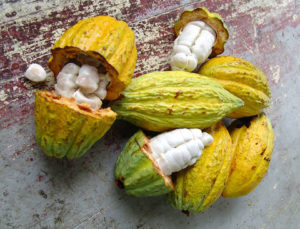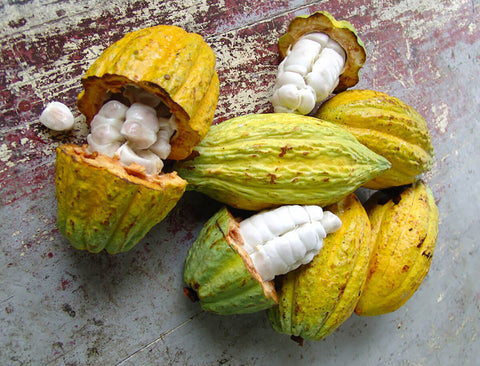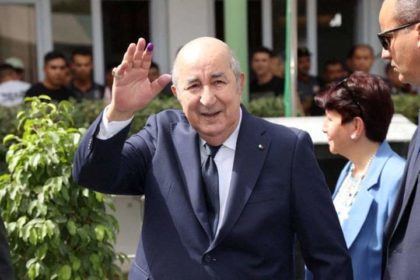
By Adeyemi Adekunle
On a quiet morning in Sipilou, a small town near Ivory Coast’s border with Guinea, the hum of activity at a cocoa checkpoint signaled business as usual. Trucks loaded with cocoa beans, often referred to as “brown gold,” rolled through, their destination supposedly legal export points. But behind the façade of legitimate trade, a darker story was unfolding—one of corruption, illicit profits, and the betrayal of trust by officials sworn to safeguard the nation’s prized export.
This week, the Ivory Coast army revealed that five high-ranking officials, including the town’s prefect and heads of police, customs, and the gendarmerie, were complicit in cocoa smuggling operations. The fallout of the revelation has shocked a country that prides itself as the world’s largest producer of cocoa. The officials, tasked with curbing trafficking, were found to have facilitated the illegal movement of cocoa beans across the western border into Guinea and Liberia.
The scale of the operation is staggering. Since October, an estimated 50,000 to 75,000 metric tons of cocoa beans have been smuggled, costing the Ivorian economy millions of dollars. Exporters have reported a notable drop in cocoa reaching the ports, raising concerns over the country’s ability to meet global export demands.
A source within the cocoa trade, speaking anonymously, painted a grim picture of the smuggling network. “It’s a well-oiled machine,” the source said. “Smugglers have direct connections with the very officials meant to stop them. Payments of 15 million CFA ($23,500) per truck ensure safe passage for trailer-loads of cocoa into Guinea, where higher prices await.”
Guinea’s traffickers, benefiting from surging global cocoa prices, have been paying up to 5,000 CFA per kilogram of cocoa beans, far above Ivory Coast’s regulated farm gate price of 1,800 CFA. This enormous price disparity has made smuggling an irresistible temptation for traders and farmers alike.
“Honestly, there is far too much money to be made in trafficking, and I don’t see how we’re going to stop it,” lamented Drissa Konate, a cocoa buyer from Ouaninou, another Ivorian border town. He claimed to have witnessed dozens of trucks crossing into Guinea since October.
For farmers like 38-year-old Issa Koulibaly, who cultivates cocoa on a small family farm near Sipilou, the scandal is both infuriating and heartbreaking. “We are told to sell our cocoa through legal channels at fixed prices, but the smugglers reap huge profits,” Koulibaly said.
He explained how the government urges farmers to support the regulated cocoa industry to ensure stability and sustainability. Yet, the betrayal by top officials makes such appeals ring hollow. This sentiment is echoed across the region, where the cocoa trade forms the lifeblood of communities. Farmers often struggle with low government-regulated prices and delayed payments, leaving them vulnerable to smugglers offering quick cash.
“The situation feels hopeless,” said Koulibaly. “We are caught between doing the right thing and survival.”
The suspension of the five Sipilou officials comes after weeks of investigation, spurred by whistleblowers and mounting pressure from industry stakeholders. The army’s involvement underscores the severity of the issue and highlights the government’s determination to address it. However, many industry insiders question whether this move is enough.
“This is good news but it comes too late,” said one exporter, referring to the financial losses already incurred due to the trafficking. “The damage has been done. We’ve missed out on significant revenue, and the credibility of our export system is under scrutiny.”
Corruption in the cocoa supply chain not only undermines Ivory Coast’s reputation but also destabilizes its economy, which heavily relies on cocoa for foreign exchange. The smuggling crisis compounds existing challenges like fluctuating global prices, environmental degradation, and the exploitation of farmers.
The impact of smuggling extends beyond economics. By diverting cocoa to informal markets, smugglers bypass the rigorous quality controls imposed on legitimate exports. This threatens to tarnish the country’s brand, which has long been associated with high-quality beans used in chocolates worldwide. Moreover, the illicit trade weakens government revenue streams meant for infrastructure, education, and healthcare. “When cocoa is sold outside official channels, everyone loses,” said an economist specializing in agricultural trade. “The funds needed to reinvest in farmers and their communities are simply siphoned off.”
In the wake of this scandal, all eyes are on Ivory Coast’s leadership to implement reforms that ensure transparency and accountability in the cocoa trade. Advocacy groups are calling for stricter border controls, increased surveillance of cocoa routes, and greater investment in farmer support programs to reduce their dependence on smugglers.
The challenge, however, lies in overcoming entrenched corruption. While the suspension of the Sipilou officials marks a critical first step, skepticism remains. “Corruption is deeply rooted,” said a human rights advocate. “Suspending a few individuals won’t dismantle the entire network.”
For many, the involvement of respected figures like Professor Attahiru Jega, who is spearheading anti-trafficking reforms in the agricultural sector, offers a glimmer of hope. His work emphasizes the need for collaboration between the government, local communities, and international organizations to combat smuggling effectively.
As Ivory Coast grapples with this crisis, the cocoa trade teeters on the edge of reform or collapse. For farmers like Koulibaly, the dream of a transparent and fair cocoa industry remains alive but precarious.
“I just want to know that my hard work means something,” he said, gazing out over his farm. “We don’t grow cocoa to see it stolen or corrupted. We grow it for our children, for our country.”
In the end, the battle against cocoa smuggling is not just about trucks crossing borders or officials taking bribes. It’s about preserving the livelihoods of millions of farmers, safeguarding the integrity of a cherished export, and securing a sustainable future for Ivory Coast’s most vital industry.
As trucks continue to rumble across dusty roads near Sipilou, the government faces a test of will and strategy. The next steps will determine whether Ivory Coast can reclaim control of its cocoa industry or remain ensnared in the bittersweet cycle of corruption and trafficking.




